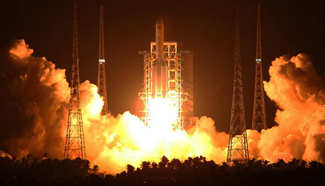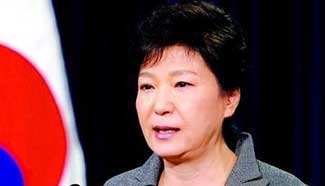WASHINGTON, Nov. 3 (Xinhua) -- Capital outflows from China will not pose a significant long-term risk to the world's second-largest economy, as it's largely a natural process of portfolio diversification, U.S. experts said Thursday.
"A very important part of capital outflows from China are healthy developments, in the sense that Chinese households are diversifying international portfolios of assets and Chinese corporates are investing overseas and developing global businesses," Charles Collyns, managing director and chief economist at the Institute of International Finance (IIF), told Xinhua during a conference call on its latest Capital Flows to Emerging Markets Report released Thursday.
Hung Tran, executive managing director of the IIF, also said in the conference call that "now more and more acquisitions of international assets have been done by the private sector" in China, particularly the households and the corporate sector. He believed China will continue to increase its net international investment position as it accumulates large current account surplus for years.
Collyns noted that capital outflows from China have diminished in the past several months, compared with the second half of last year and earlier this year, as China's policy makers continue focusing on supporting economic growth and avoiding exchange rate volatility.
"They provided support for the economy to maintain growth in line with the target. They managed the RMB (renminbi) against the currency basket with greater transparency and consistency. Such regime reduced fears of a disorderly RMB depreciation. These policies have been successful for now," he said.
But he also warned that if there were more capital flight in the short term, it could generate a loss of confidence in China's exchange rate policy and raise concerns of financial stress as a result of the buildup of the debt in China.
The IIF in the report estimated that total net outflows from China will decline from more than 670 billion U.S. dollars in 2015 to around 460 billion dollars in 2016 and to 350 billion dollars in 2017.
Given the moderation of capital outflows, the IIF expected the Chinese government to continue advancing capital account liberalization, but through cautious measured steps.
"The Shenzhen-Hong Kong Stock Connect, to be launched in late November, should attract more portfolio inflows. The QDII2 program, which allows qualified individuals to directly invest overseas, will also be approved in the near future," the report said. "This is a clear signal that authorities do not see massive retail outflows as a significant long-term risk."










